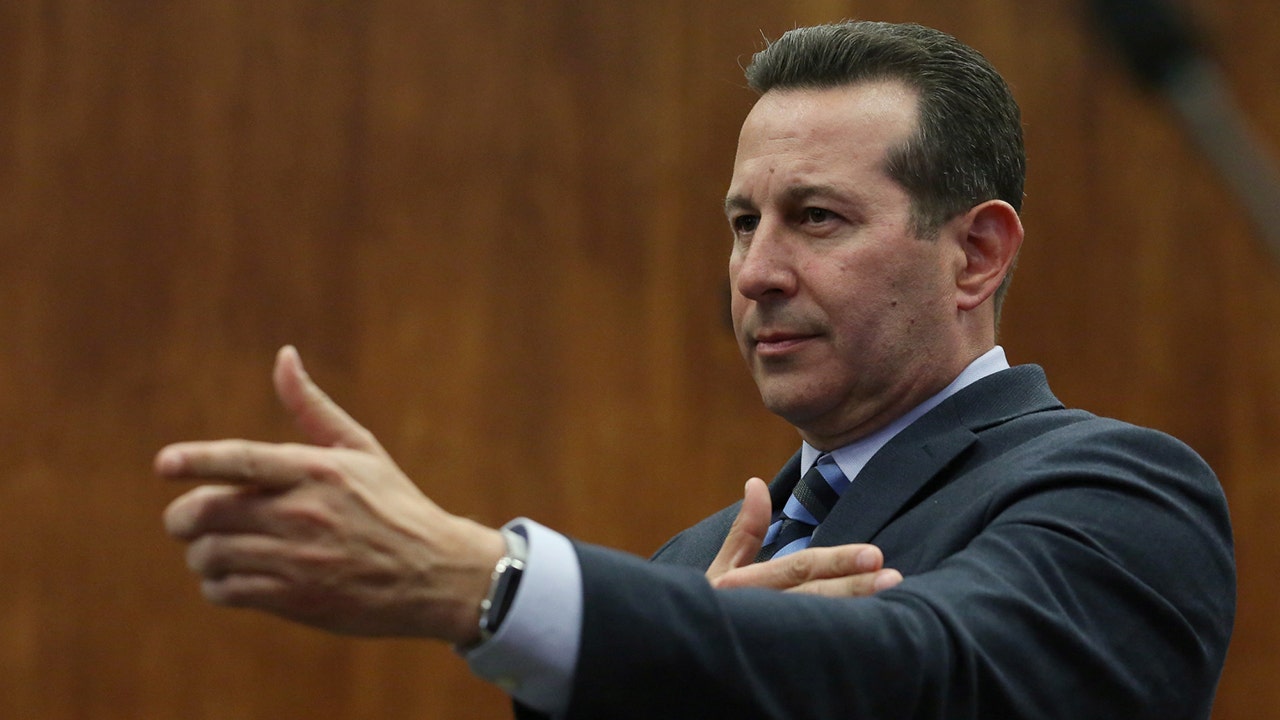After Hamas’s Oct. 7 attack on Israel, pro-Israel political groups put the Democratic Party’s most outspoken critics of the Jewish state on notice: An avalanche of spending was coming to either unseat them or force them to change their posture on the Middle East.
But the first expeted target of that avalanche, Representative Summer Lee of Pittsburgh, will face only nominal opposition in the Pennsylvania primary on Tuesday. And though groups like Democratic Majority for Israel and United Democracy Project, an affiliate of the American Israel Public Affairs Committee, have raised tens of millions of dollars to make good on their threats, they have so far mostly declined to spend it.
People involved in that pro-Israel effort say Democrats should not misinterpret the lack of an effort against Ms. Lee, a fierce critic of Israel whose western Pennsylvania district includes the Jewish neighborhood of Squirrel Hill, which remains traumatized five years after the biggest massacre of Jews in American history, at the Tree of Life Synagogue.
Pro-Israel groups were unable to recruit an experienced, well-known primary challenger to Ms. Lee. That is not the case in primaries to come, especially Representative Jamaal Bowman’s in New York in June and Representative Cori Bush’s in Missouri in August.
But there is another factor: Since the war in Gaza began, the politics surrounding Israel have shifted markedly, especially in Democratic primaries. Six months of punishing retaliation in Gaza have taken more than 31,000 Palestinian lives, according to the Gaza Health Ministry. Democratic leaders from President Biden on down are far more likely to encounter pro-Palestinian demonstrators than to encounter pro-Israel demonstrators.
On Saturday, 37 House Democrats voted against supplying military aid to Israel.
Money from pro-Israel groups is not an unalloyed boon for Democratic primary challengers. It comes with a serious downside: Young, progressive voters want nothing to do with AIPAC and its allies. A New York Times/Siena College poll this month found that 42 percent of registered voters sympathized with Israel in the Gaza war, compared with 24 percent who said they sympathized with the Palestinians. But among voters ages 18 to 29, 15 percent sympathized with Israel, versus 45 percent who sympathized with the Palestinians.
Mark Mellman, a longtime Democratic pollster and the founder of Democratic Majority for Israel, blamed the tone of news coverage for that change in public opinion.
“No question there’s been a shift in the coverage,” he said. “No question.”
Faiz Shakir, a longtime adviser to Senator Bernie Sanders, the Vermont independent who has been a vocal critic of Prime Minister Benjamin Netanyahu’s Israeli government, said there was a larger policy question at play.
“The progressive view is that Israel is safest when its neighbors are safest and doing well,” he said. “The conservative view is about keeping those neighbors down. That issue, how are you best securing and maintaining peace in Israel, is a question Netanyahu is losing in Israel and now AIPAC is losing in the United States.”
If anything, the threats from pro-Israel groups have only hardened the resolve of their Israel’s critics, not shifted their views. The AIPAC-affiliated United Democracy Project has been funded in part by conservatives: Jan Koum, a co-founder of WhatsApp, gave at least $5 million; Bernard Marcus, a co-founder of Home Depot and an outspoken supporter of former President Donald J. Trump, has given at least $2 million; and the financier Paul Singer, another top Republican donor, has donated $1 million.
That has allowed the Democratic left to rail against “Republican money” threatening Democratic primaries. It has helped their cause that so many targets are House members of color, such as Mr. Bowman, Ms. Bush and Representative Ilhan Omar of Minnesota.
“We know that if what AIPAC was lobbying for was truly popular in our districts, they wouldn’t need to spend millions of dollars to smear progressives, all of whom are people of color,” Ms. Omar said on Friday. (Her main primary opponent, Don Samuels, is Black.)
At the same time, organizations such as Justice Democrats and Mr. Sanders’s Our Revolution are raising money off the Sanders rallying cry, “Not another nickel to support Netanyahu’s wars and atrocities.”
Pro-Israel groups say it is far too early in the primary season to judge their impact.
“The voice of the pro-Israel movement will clearly be heard by the end of this election year,” said Marshall Wittmann, a spokesman for AIPAC. “Our activists are deeply engaged in helping to elect pro-Israel candidates and defeat detractors.”
Waleed Shahid, a co-founder of Justice Democrats, said that coordinated AIPAC funding had slowed the Democratic shift toward a more critical attitude toward U.S. aid to Israel.
United Democracy Project had raised more than $47 million through February, and the smaller Democratic Majority for Israel, which does not seek out Republican donors, had raised $4 million through March. But spending has not matched the fund-raising.
By the end of February, United Democracy Project had used only about $10 million of its war chest. About half had gone to an unsuccessful effort to stop State Senator Dave Min from finishing in the top two for an open House seat in Orange County, Calif., and the other half had gone to a super PAC supporting Representative Adam Schiff’s campaign for Senate in California. Israel was not much of an issue in either race.
This month, the group has poured $1.4 million into the House campaign of a Maryland state senator, Sarah Elfreth, running against a wide field of Democrats including Harry Dunn, a former Capitol Police officer who has raised even more money running on his experience battling Trump supporters during the Jan. 6, 2021, attack on the Capitol. Again, the connection to Israel is not clear. Mr. Dunn has pledged to be a supporter of the Jewish state.
And it opposed a progressive primary challenger to Representative Danny Davis in Illinois, Kina Collins, who ended up with only 19 percent of the vote last month. AIPAC has claimed bragging rights for the defeat of minor candidates such as Ms. Collins.
“It is good politics and good policy to stand with the Jewish state in this critical moment, as is reflected in polls and in the strength of AIPAC-endorsed candidates,” Mr. Wittmann said.
But none of this has laid a glove on the core group of Democrats known as the Squad, who have only amplified their calls for a permanent cease-fire in Gaza, their push for strict conditions on aid to Israel and their castigation of what they see as Israeli human rights abuses or, more pointedly, “genocide.”
Indeed, criticism of Israel has spread beyond the most liberal members of the party. During debate over the Israel aid bill that is now before the Senate, eight Democrats, including mainstream liberal voices like Representatives Dan Kildee and Debbie Dingell of Michigan, Jamie Raskin of Maryland and Melanie Stansbury of New Mexico, submitted an amendment that would withhold offensive military weapons until the United States ensures they would not be used to “indiscriminately kill civilians in Gaza.”
Representative Mike Levin, an AIPAC-endorsed Democrat in a California swing district, told reporters that a change of Israeli leadership was needed to bring peace, which is counter to AIPAC’s tradition of supporting the Israeli government regardless of its politics.
Usamah Andrabi, a spokesman for Justice Democrats, said he still expected tens of millions of dollars to be spent against Mr. Bowman and Ms. Bush, two of the most prominent progressive voices. About $1.2 million in bundled contributions have already gone to their challengers through AIPAC.
According to Mr. Andrabi, the “threat” from pro-Israel groups — “‘we’re going to take out the Squad, and we’re going to show the Squad is not the voice of Democratic voters’” — was failing. “In fact,” he said, “what we’ve seen is the Squad is the voice of Democratic voters.”






